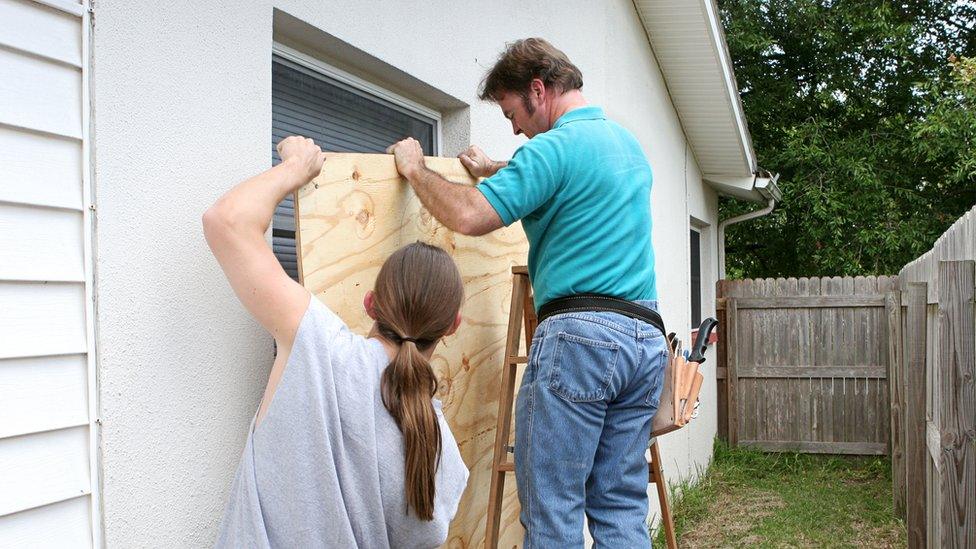Hurricane Maria: British territory braced for onslaught
- Published
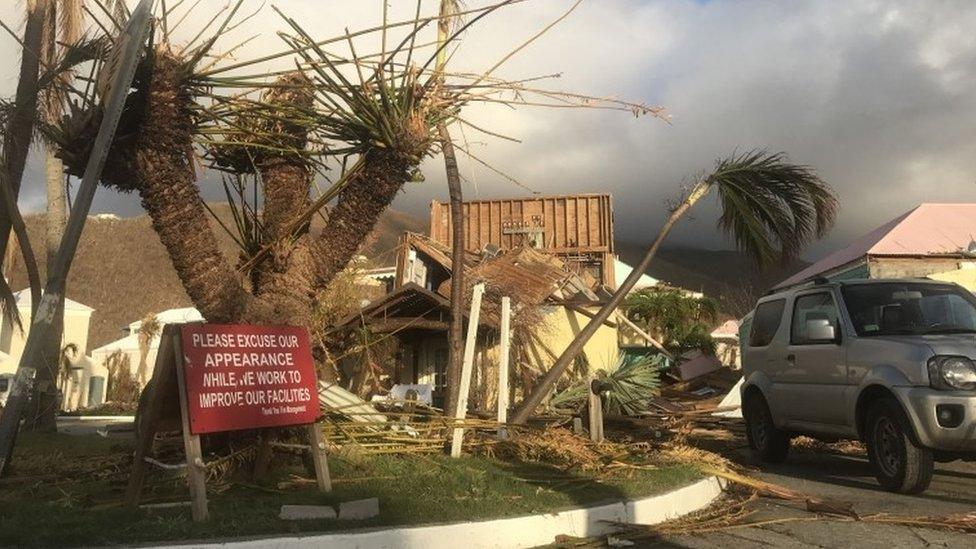
Debris from Hurricane Irma, earlier this month, is expected to cause problems when Maria hits
People in the British overseas territory of Turks and Caicos are being urged to find shelter immediately as Hurricane Maria heads their way.
Winds of up to 177 km/h (110mph) could cause severe damage to the archipelago, home to 31,000 people, on Thursday night, the Foreign Office said.
It will be the second hurricane to hit the islands in a month.
Category five Irma destroyed homes, hit communications and caused shortages of medical supplies, food and water.
Hurricane Maria has already left at least seven people dead on the island of Dominica and caused widespread destruction in the US territory of Puerto Rico, where winds tore roofs off thousands of buildings and caused widespread flooding.
The US National Hurricane Center (NHC) said Maria was passing the Dominican Republic, and is expected to approach Turks and Caicos and the south-eastern Bahamas later.
It said the storm, which is currently a category 3 hurricane, may strengthen as it moves across the warm Caribbean waters.
While the eye of the storm may pass by to the east of the islands, they are predicted to suffer from storm surges and torrential rain, the NHC said.

Emergency steps are being taken to prepare for the worst on the islands, which are popular stops for cruise ships, and attract offshore finance.
Royal Navy Lieutenant Stephen Dunning said he was concerned that high winds would pick up debris and throw it "around like a washing machine".
He said supplies had been coming in since they knew the storm was heading their way.
"As soon as the storm has passed, we can get out and assist where we can, just like we have for the last week," he added.
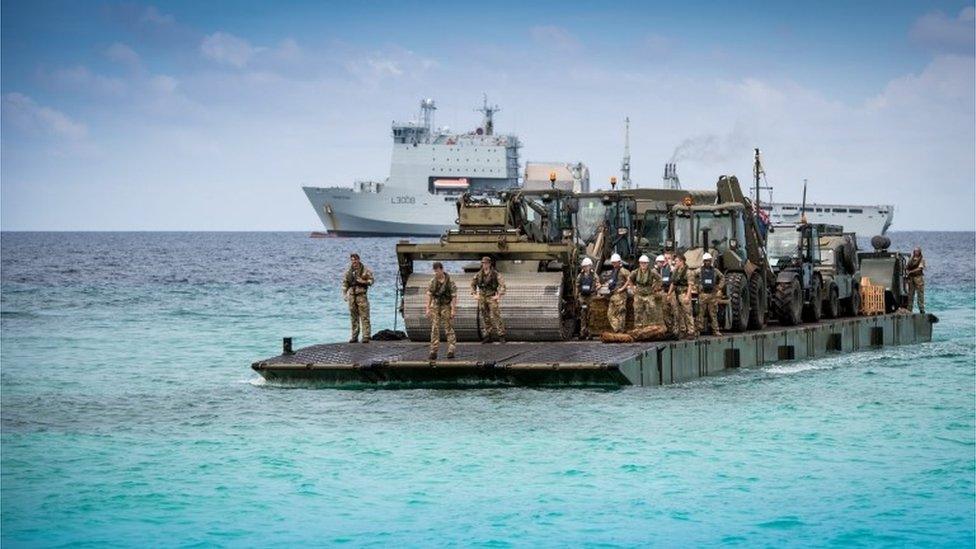
British ship RFA Mounts Bay delivers vehicles to Grand Turk for use in the rebuild
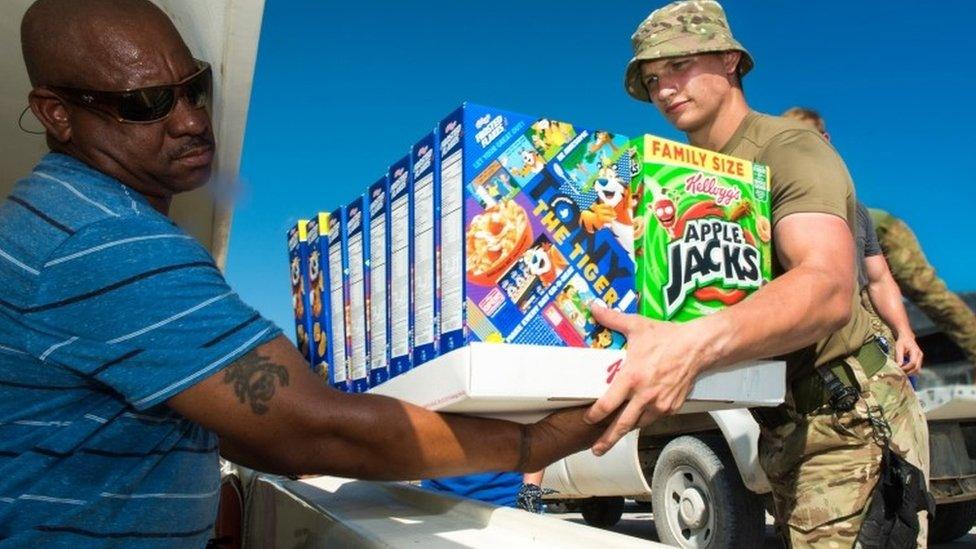
Soldiers bring aid to the South Caicos
A Royal Canadian Air Force Hercules aircraft, carrying 5.5 tonnes of building material, and food and water, landed on the capital island, Grand Turk, to replenish British troops' supplies.
Gracita Quelch, who lives on Grand Turk, said: "Just when we have had one, we get one right back again - it is scary."
Fellow resident Debbie Hayes said if Maria was "no worse than Irma, we are fine".
The Foreign Office is advising against all but essential travel to the islands, and is warning those already there to find shelter straight away and prepare to take cover.
British people affected or concerned about others can call a Foreign Office helpline on +44 (0)20 7008 0000.
Meanwhile, early assessments on the British Virgin Islands (BVI) suggest they may have got off lightly.
Gus Jaspert, governor of the Caribbean islands, which were wrecked by Hurricane Irma two weeks ago, said: "We had high winds, we had a bit of flooding, and we had bit of a storm surge that knocked out some of the roads - but thankfully we have been spared the worst."
Mr Jaspert said the expected arrival of Royal Navy ship HMS Ocean on Friday, which is carrying 60 tonnes of UK aid, would "turbo charge" repair work and recovery efforts.
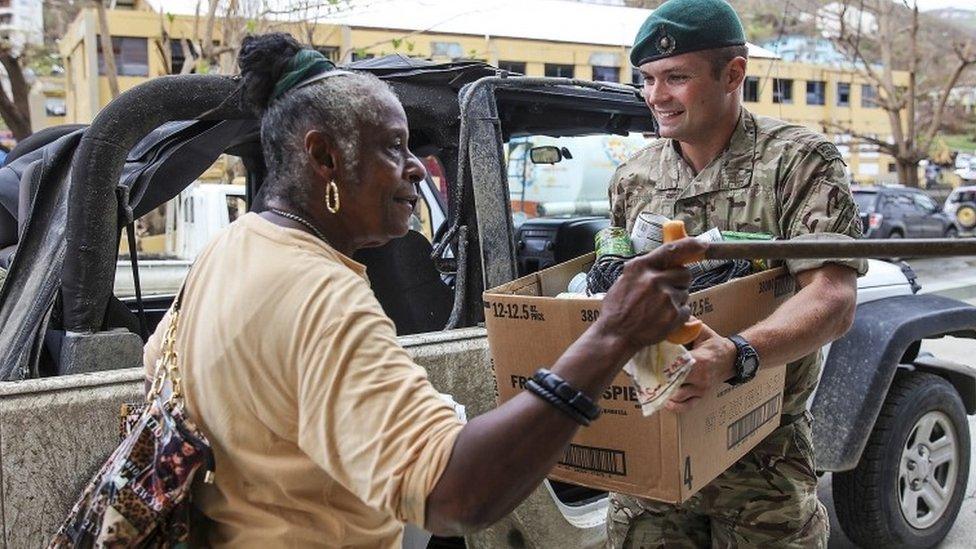
A marine drops off a box of aid to a shelter on the British Virgin Islands
He said there was a lot of work to do after roads, schools, the airport, police headquarters, homes and other buildings were damaged by Irma.
"We have got huge ambitions and we want to genuinely get this place back, quickly. Not just to where it was, but to a place that is even better than before," Mr Jaspert said.
Sir Richard Branson, whose private Necker Island was struck by Hurricane Irma, said Maria brought "howling rain".
In an Instagram post, he said: "Word from the bunker is that all are safe on Necker. Lots of howling rain (2+ feet) but all ok.
"The night of a thousand buckets... yet to hear the latest on the rest of the BVI, thoughts are with our friends in Puerto Rico and all in Hurricane Maria's path."

Are you on Turks and Caicos? Email haveyoursay@bbc.co.uk, external.
Please include a contact number if you are willing to speak to a BBC journalist. You can also contact us in the following ways:
WhatsApp: +44 7555 173285
Send pictures/video to yourpics@bbc.co.uk, external
Tweet: @BBC_HaveYourSay, external
Text an SMS or MMS to 61124
- Published31 March 2023
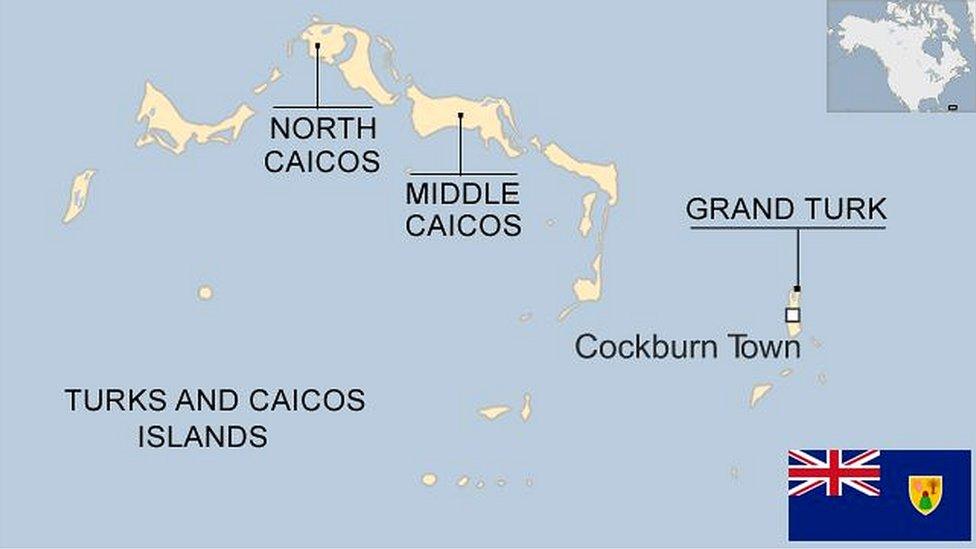
- Published28 August 2023
